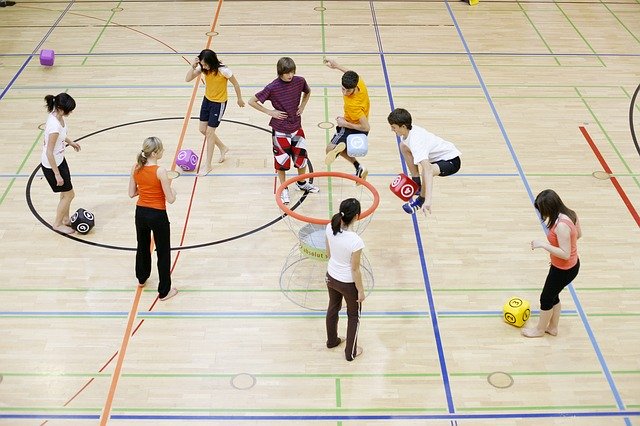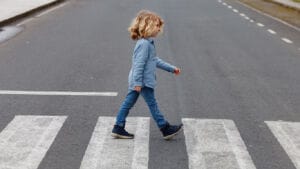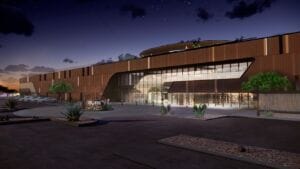Now more than ever, schools are promoting the importance of a healthy balance between academic work and physical exercise. One of the most significant steps schools have taken in this vein is through a renewed emphasis on physical education in the curriculum. Joyous Montessori is one such example. They are a unique school providing children with early education based on the globally renowned Montessori philosophy. The school in Keller, Texas, has trained and certified staff members who are passionate about children, as well as low student-to-teacher ratios. Most importantly, Joyous Montessori understands that for students to reach their full potential, they must have their emotional, social, and physical needs met. More specifically, these physical needs refer to physical fitness, which is what this article explores. Continue reading to discover several important benefits for the mind and body that are derived from physical education, according to Joyous Montessori.
Physical Education Promotes Physical Growth and Development
Exercise promotes both physical growth and development, which are especially important among young people. The obesity epidemic is very real, and often the lifestyle choices that can lead to obesity, such as a poor diet and lack of exercise, start at a young age. That is why it is so important for schools to help prevent obesity and the conditions that go along with it, such as high blood pressure, by emphasizing the importance of daily physical fitness through the curriculum. Joyous Montessori adds that children are able to play outside every day at the school, weather permitting. During extreme weather, kids have access to an indoor gym so that they still have access to daily physical activity. In addition to burning off calories, physical exercise provides students with more energy for the day ahead, as well as plays a key role in the growth of bones and cartilages. Bone and muscle-strengthening exercises including jumping, weightlifting, push-ups, hula hooping, and monkey bars. Lastly, physical education promotes a healthy heart, which is critical to a young person’s development. Aerobic exercises are the best form of activity for the cardiovascular system. Examples of these include running or jogging, jumping rope, or playing team sports like basketball or soccer. Joyous Montessori also ensures that all their sports have experts helping to coach and teach either through members of staff or outside vendors to ensure that all activities are safe.
Physical Education Improves Concentration and Focus
When a student engages in a physical activity, the basal ganglia of their brain is enlarged. For those that don’t know, the basal ganglia are the part of the brain that is responsible for a person’s ability to focus. The ability to focus is becoming an increasingly difficult skill to master what with the onslaught of distractions brought on by technology. According to Joyous Montessori, the youth of today are constantly checking their smartphones, laptops, and tablets, to the point that continued focus and concentration on one task can be extremely challenging to achieve. That is why promoting physical education in schools is so important. During a physical education class, students partake in exercises and games that will ultimately help them improve their concentration throughout the rest of the school day. Thus, beyond the physical health benefits that are gained from exercise (more on that below), physical education also improves brain function and capacity.
Physical Education Relieves Stress and Anxiety
Yet another reason that physical education is so important for students is because it has positive mental health benefits, says Joyous Montessori. One of the key mental health benefits derived from exercise is the alleviation of stress and anxiety. Just like adults, students of all ages frequently experience stress. Whether it is related to academic performance or the social dynamics and pressures of high school, it is extremely common for both children and adolescents to feel anxious. This is where physical education comes in. According to Joyous Montessori, exercise has been proven to help relieve stress. Engaging in a physical activity provides students an environment in which they can decompress and take their mind off of whatever is making them anxious. Further, the act of breathing deeply when exercising provides additional air to the lungs, which results in more oxygen in the brain. In turn, this causes endorphins to be released, which are the body’s natural painkillers (more specifically, endorphins activate the opioid receptors in the brain, which help bring about feelings of euphoria and well-being). Ultimately, physical education can help improve the mood of a student, as well as give them an opportunity to focus on something else other than their stress.
Physical Education Fosters Healthy Sleeping Habits
According to Joyous Montessori, one final benefit of physical education for students is its ability to foster healthy sleeping habits. A good night’s sleep is essential to the happiness and health of everyone, especially children who need more sleep than adults. Studies have shown that students who take part in regular physical exercise have a tired body by the end of the day. The result? A long and healthy sleep brought on by the fact that your body is craving rest after exercising that day. More than providing you with ample energy for the next day, a good sleep improves the attention span of students. This makes it easier for students to concentrate and absorb the information being taught to them in the classroom.
Joyous Montessori concludes that physical education is not only important, but essential for the growth and development of students and that all schools need to have an improved focus on ensuring that all students are active every day.




